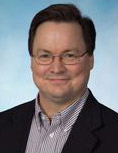Earlier this month, NCJFCJ posted about the 45th anniversary of the 1967 In re Gault decision in which the U.S. Supreme Court affirmed that juveniles accused of crimes must be afforded many of the same due process rights as adults as required by the Fourteenth Amendment. This Supreme Court decision was followed in 2005 by the Roper v. Simmons case in which the court outlawed death sentences for juveniles and the 2010 Graham v. Florida case in which the court ruled that life sentences for juveniles convicted of non-homicide crimes was unconstitutional, but did not rule out life without parole sentences for homicide crimes committed by juveniles.
On March 20, 2012, the U.S. Supreme Court heard arguments in two cases, Miller v. Alabama and Jackson v. Hobbs, to consider whether imposing a sentence of life without possibility of parole on an offender who was fourteen at the time he committed capital murder constitutes cruel and unusual punishment in violation of the Eighth Amendment. Juvenile justice advocates argue that such punishments do not consider the immaturity of the juvenile’s age, which makes them less culpable than adults. Opponents argue that the Tenth Amendment gives states the right to operate their prison systems according to their own standards.
The 90-minute hearing indicated that the court might allow life without parole to be imposed on some youth, but may draw the line for younger youth, but at what age is unknown. There was no indication during the hearing that a majority of justices would agree to a flat ban on life without chance of parole sentences for anyone under eighteen.
NCJFCJ will follow these cases and post additional information once the U.S. Supreme Court releases an opinion in the next few months. More information on these pending U.S. Supreme Court cases can be found on the SCOTUS Blog at:



